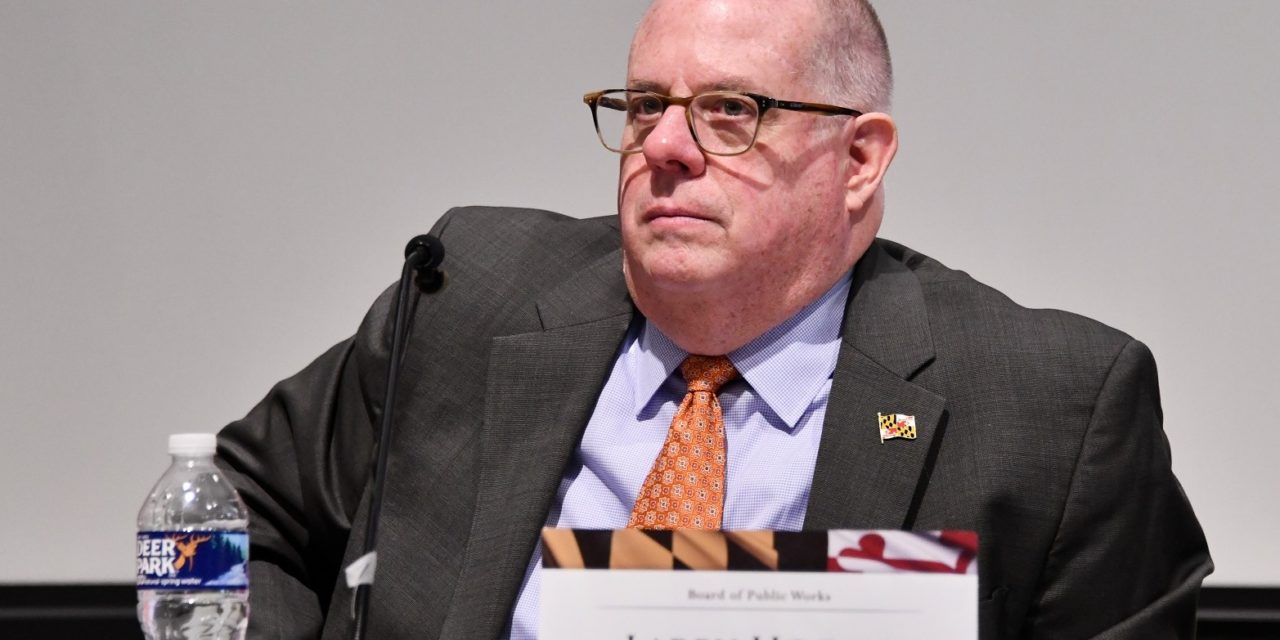Gov. Larry Hogan on Thursday submitted a supplemental budget for fiscal year 2021 that requests $10 million for emergency coronavirus preparedness expenses as well as funding for other state and local initiatives, his office said. The supplemental budget contains general-fund spending growth to 0.5%, and provides more than $90 million in general-fund savings.
“With this supplemental budget, we are providing $10 million for emergency coronavirus preparedness expenses,” Hogan said in a statement his office released. “Our highest priority is keeping our residents safe. The public should be assured that our state’s preparedness builds on decades of planning, experience, and expertise gained from previous and ongoing public health events.”
The Maryland Department of Health will allocate the emergency funds for the following:
- Purchasing new equipment and reagents to provide rapid diagnoses in state laboratories and to enhance specimen transport and packaging
- Acquiring additional staffing support to conduct disease investigations, including clinic visits or mobile home-testing teams for uninsured/underinsured people
- Acquiring additional staffing support and resources to maintain operational response, such as coordination, training, communications and personal protective equipment.
- Obtaining and maintaining quarantine/isolation housing capacity, including cleaning services
- Enhancing data analytics and surveillance systems for rapid case detection and response.
- Coordinating and facilitating transportation for uninsured/underinsured individuals with symptoms for medical evaluation
- Enhancing health care systems support for care to include purchases of additional equipment, lab services, and specimen transport
- Media support, printing, outreach, translation services and communications equipment including tablets and hot spots
- Providing wrap-around services for quarantined individuals including food, medications, etc.
- Providing behavioral health services to affected communities
The governor’s FY21 supplemental budget funds several other state priorities, including:
- $14.5 million for the Behavioral Health Administration for medical provider reimbursements and contractual services
- $11.1 million for foster care maintenance payments
- $6 million for the Maryland Center for School Safet
- $2.7 million for the Temporary Disability Assistance Program
- $1.1 million in federal funds to enhance the security of the 2020 primary election and the 7th Congressional District special election
Additional funding for local priorities includes:
- $1.25 million for the African American Neuroscience Research Initiative at the Lieber Institute for Brain Development.
- $500,000 for the End Hunger in Calvert County program
- $500,000 for the Steven A. Cohen Military Family Clinic at Easterseals to provide behavioral health services to service members, veterans, and their families
- $500,000 for the Boys and Girls Clubs
- $200,000 for education and training for firefighters
- $100,000 to conduct an air-traffic noise study on communities near Baltimore-Washington International Thurgood Marshall Airport
On Wednesday the governor announced at the Board of Public Works meeting that he was introducing emergency legislation granting him the authority to transfer money from Maryland’s rainy-day fund for the coronavirus response in the state.
The legislation allows the governor to transfer up to $50 million from the Revenue Stabilization Account for costs associated with the 2019 novel coronavirus (COVID-19), the governor’s office said in a statement. The legislation notes that the emergency act “is necessary for the immediate preservation of the public health or safety.”
Hogan also said on Wednesday that the Maryland Emergency Management Agency was raising its activation level from the lowest — “normal” — to “enhanced.” The change was made to mobilize additional resources across state government.
The state maintains four state response activation levels, also known as status levels. “Each status level represents an increased need for situational awareness and coordination of State response activities and resources,?” according to MEMA. The “enhanced” designation means “the incident or event “requires additional monitoring or resources. Core EOC Staff with potential augmentation from selected agencies, functions, and organizations.” The two other designations are “partial” and — the most serious — “full.”




Recent Comments